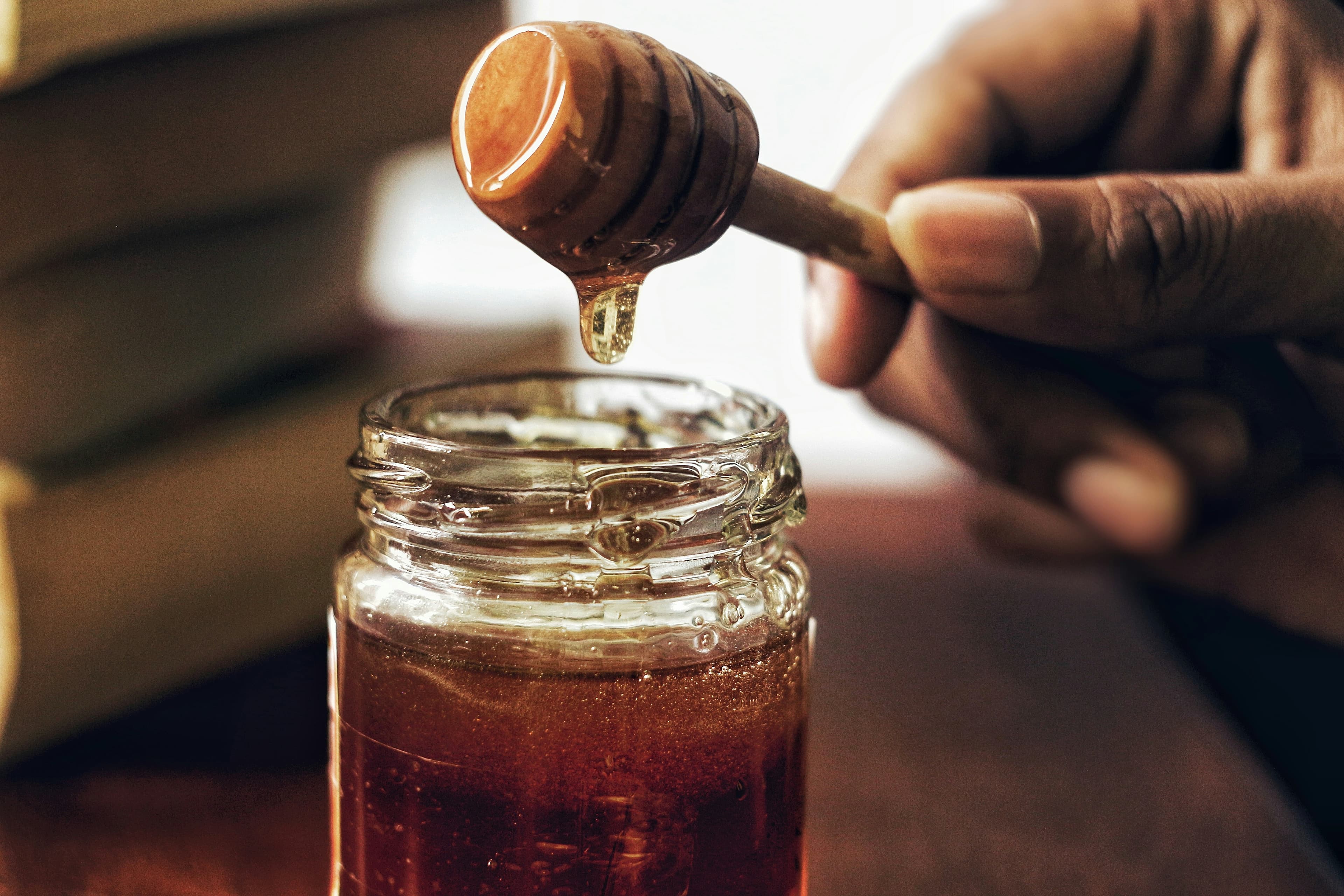The inquiry "Can dogs eat honey?" is relevant in dog nutrition. As we explore this topic, it's essential to understand the potential benefits and considerations of introducing honey into your dog's diet.
Is Honey Good for Dogs?
Honey, a natural sweetener, is packed with vitamins A, B-complex, C, D, E, and K, as well as minerals like calcium, magnesium, potassium, and antioxidants. These components can offer health advantages for humans and dogs alike. However, honey should be introduced to a dog's diet cautiously due to its high sugar content and the potential risk of botulism spores, which can be dangerous to dogs, especially puppies and those with compromised immune systems.
Are There Benefits of Honey for Dogs?
Honey can be an energy source due to its natural sugars, providing a quick energy boost for active dogs. Its antioxidant properties may also contribute to your pet's overall health by fighting off free radicals. Moreover, honey has been noted for its antimicrobial properties, which can aid in treating minor wounds and infections externally.
Honey's anti-inflammatory effects can benefit dogs suffering from allergies. Introducing small amounts of local honey may help your dog build a tolerance against the allergens present in your area, potentially reducing allergic reactions.
How Much Honey Can Dogs Safely Eat?
Moderation is key. How much honey your dog can eat without adverse effects depends mainly on their size, age, and overall health. A general guideline is to limit honey to less than a teaspoon per day for small dogs and up to a tablespoon for larger breeds. This moderation ensures that dogs and honey will be on good terms without risking obesity or dental issues due to excess sugar intake.
Don't forget to talk with your veterinarian before adding honey to your dog's diet, especially if your pet has diabetes or is overweight. The vet can offer tailored advice based on your dog's health needs and conditions.
Is Honey Ok for Dogs?
The question encompasses several factors. While honey is non-toxic and can be safe for dogs in small quantities, it's crucial to choose the right type of honey. Raw, unprocessed honey is preferred over processed versions because, in this form, it doesn't lose its natural nutrients and benefits. However, raw honey should be avoided in puppies and immunocompromised dogs due to the risk of botulism.
Always gradually introduce honey to your dog's diet to monitor any adverse reactions, such as gastrointestinal upset. If any negative symptoms appear, don't give honey to your dog, and consult your veterinarian.
So, can dogs have honey? Honey can become an excellent life sweetener for your pet. The potential health benefits, from energy enhancement to allergy relief, make it an appealing supplement. However, these benefits come with the caveat of moderation and awareness of your dog's individual health needs.
Frequently Asked Questions
Can dogs eat maple syrup?
Maple syrup can be given to dogs in very small quantities as an occasional treat, but it should be given sparingly due to its high sugar content and lack of nutritional benefits for pets.
Is manuka honey for dogs a good treat choice?
Due to its antibacterial properties, manuka honey can be a good dog treat. Still, it should be used in moderation and only after consulting with a veterinarian, especially considering its higher potency than regular honey.



